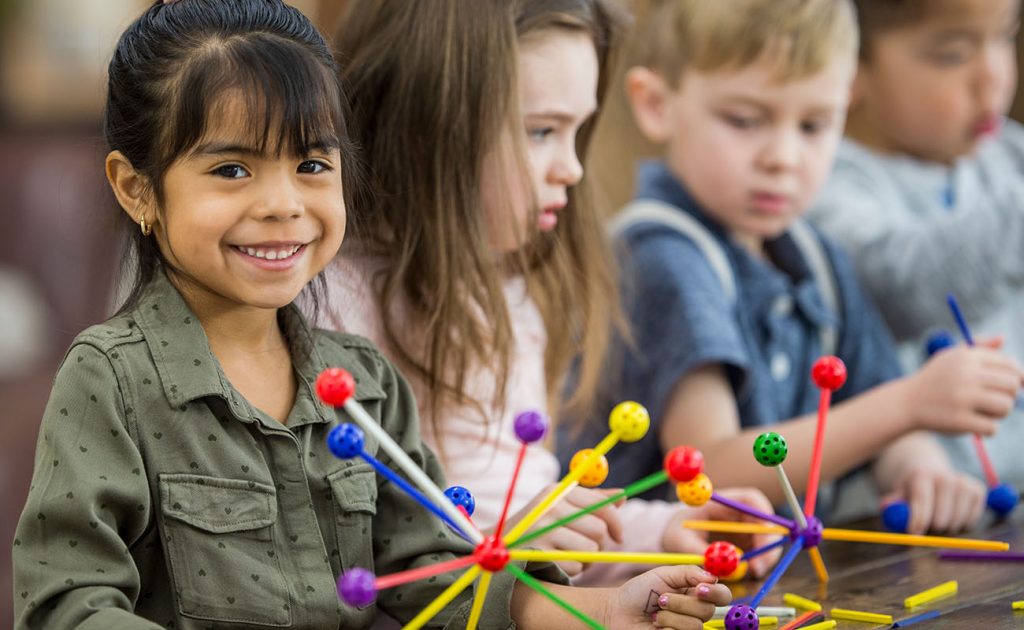Settling-in period is the first few days when a child joins Oscar Preschool and Daycare facility where they stay for a while in order to get to know the staff, children and their new environment.
It is important that the child spend shorter duration in Oscar Daycare and Pre-school, this will help
them to feel a little more settled and confident about their new environment. It also gives parent
the opportunity to ask questions and find out a bit more about how their child will be spending
their day and the daily routine as well as getting to know the staff. Fixed arrival time and regularity
of these visits is an important part of the child’s settling in process. It is a time where relationships
between staff and parents is built and most importantly child can feel that they start to build trusting
relationships, within a safe and secure environment.
As a matter of settling-in policy we encourage children to atleast spend three hours a day for the first
week. The length and time of these visits can vary as per the parents and child’s demand but should
be in consultation with the centre manager.
Children during their visits will be shown around the area where they will be based and also where
they will sleep, play, eat and respective activity zones. Child will be spending maximum time on a one-to-one basis with their mother teacher where they will be engaged in various activities of their choice. During the settling-in time parents will be able to discuss any particular sleeping or eating habit their child has or any other individual needs they would like us to consider.
Key aspects to ensure child settle-in really quickly:
• Child have home cooked meal in the Oscar Daycare and Pre-school.
• Child sleeps on the beds with their favourite beddings and duvet.
• Child spend 10-15 min. with the parents in the outdoor play area after their session have
ended.
On their first day parents may want to stay for a while to see that their child is settled and happy,
however they need not feel obliged to do this and may leave soon after saying goodbye to their
child. Parents are invited to call the facility (+91-9630090069) at any point during the day to check that all
is well. Daily reports and child videos will be shared by the centre manager when parents arrive to
collect their child.
During the first week of the Oscar Daycare and Pre-school parents are advised to send the following
things :
1. Two meals for the child
2. Two set of diapers and two pair of extra clothing
3. Set of beddings and duvet as per the weather conditions
Letters and Sounds
It's always better to start them on easier books, because then they feel successful, and that spurs them on, so they'll read more.
They will also write short, simple sentences such as “The cat ran home.” Keep a special box or bin at home filled with writing materials (crayons, pencils, markers, paper, and notepads) so your child can practice writing simple sentences about special things he’s done or seen during the day. Ask about what he’s written, and have him read it aloud. Offer encouragement by displaying his writings on the refrigerator or on her bedroom wall.
Numbers and Counting
Get your kindergartner to look for the numbers one through 30 in magazines and newspapers. He can cut them out, glue them on paper, and put them in order. When you’re riding in the car or waiting in line, play a game of “What comes next?” Give your child a number and ask him to identify the following number. At bedtime, ask him to count how many stuffed animals he has, and ask, “How many books about dogs do you have? How fast can you count them?” Take two of these books away and ask, “How many are left?”
- Kids this age will learn to recognize, write, order, and count objects up to the number 30.
- They will be able to add and subtract small numbers (add with a sum of 10 or less and subtract from 10 or less); this focus on addition and subtraction will continue through second grade.
- Kids will learn how to name and describe common shapes (circle, square, triangle, rectangle) and to identify, sort, and classify objects by color, size, and shape.
Help your child understand the concept of time by saying what time it is during routine activities. Use and explain words like morning, noon, night, yesterday, today, and tomorrow. Make a timeline together showing a typical day, with drawings of regular events and the time of day written beneath each one.



